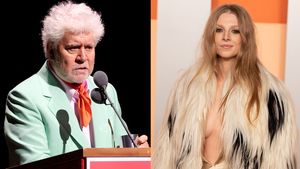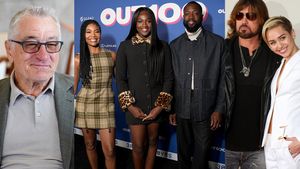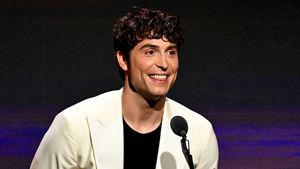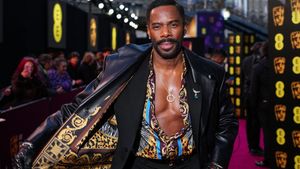While making Oppenheimer, director and writer Christopher Nolan said it became apparent that the ethical questions posed by artificial intelligence reflect those that the father of the atomic bomb faced.
“I have been interested to talk to some of the leading researchers in the AI field, and hear from them that they view this as their ‘Oppenheimer moment’,” Nolan told The Guardian. “And they’re clearly looking to his story for some kind of guidance ... as a cautionary tale in terms of what it says about the responsibility of somebody who’s putting this technology to the world, and what their responsibilities would be in terms of unintended consequences.”
Nolan said there were “very strong parallels” between the real-life J. Robert Oppenheimer, who developed the atomic bomb, and technology experts today warning against AI, which contains “a lot of ethical dilemmas without necessarily a clear path forward”.
“International surveillance of nuclear weapons is possible because nuclear weapons are very difficult to build," he continued. "Oppenheimer spent two billion and used thousands of people across America to build those first bombs. It’s reassuringly difficult to make nuclear weapons and so it’s relatively easy to spot when a country is doing that. I don’t believe any of that applies to AI.”
AI is at the center of the ongoing Hollywood strikes. Writers are currently asking studios not to use the technology to write scripts or finish projects. As tools like ChatGPT pull from existing materials to generate content, it is near impossible to protect intellectual property and existing copyright if the tool remains unregulated.
Actors are protesting proposals from studios that offer only one-time payments for their likeness. After scanning their faces and bodies, studios have put forth that they should be able to use actors' images without compensation or permission on any future projects.
Nolan, who is not part of the strikes but has voiced support, said that "as long as accountability is at the center of the discussion, I think that’s our best bet."
“I do think it’s going to be a powerful tool in the future," Nolan said. "What I’ve tried to put into the debate, and keep voicing, is the notion of responsibility and employer responsibility. The one thing we can’t do is let management, employers and the producers use AI to sidestep responsibility for their actions.”
This story was originally published onThe Advocate Channel.






























































































































